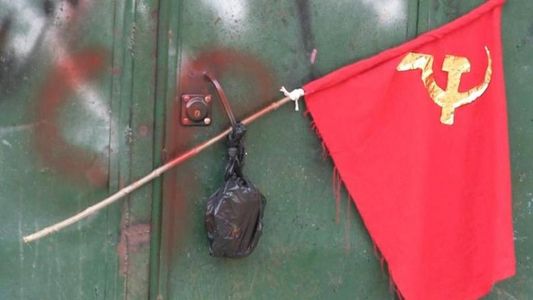Palmer Publishes Journal Articles on Shining Path
David Scott Palmer, Professor Emeritus of International Relations at the Frederick S. Pardee School of Global Studies at Boston University, recently published two journal articles on Peru’s Shining Path. Palmer also recently traveled to Peru and Ecuador as a Smithsonian Expert.
Palmer published an article in the journal Small Wars & Insurgencies (28:3, 2017, 426-450) entitled “Revolutionary Leadership as Necessary Element in People’s War: Shining Path of Peru.“
From the text of the abstract:
Though it is well understood that all internal upheaval within a polity is a consequence of agency interacting with structure, the importance of the former has perhaps become too pushed to the rear. In reality, as demonstrated by the case of Sendero Luminoso (Shining Path) in Peru, even cases which seem most determined by structural factors, in practice remain problematic, absent necessary revolutionary leadership. This leadership in turn, can make mistakes just as it guides successes.
Much that is written concerning mass mobilization insurgency – people’s war – remains derivative and incomplete. It is derivative in that few any longer grapple with the actual works they purport to cite. It is incomplete in that the mechanics of mass politics remain increasingly less understood in Western societies given to out-sourcing democracy.
People’s war remains a bracing corrective. Far from being the trite episode implied in most official literature – ‘guerrilla warfare by well-behaved peasants’ – it is the epitome of armed politics, a strategy for mobilizing the masses in support of revolutionary aspirations for a new societal ordering. Thus, it is leaders gazing at society, assessing imperfections, and advancing ideological solutions. It is followers being exhorted or compelled to participate in the realization of the solution. Violence is but one way forward, and it takes place alongside a host of other (often nonviolent) ways.
There is, then, as has always been the case, enormous danger in viewing past cases of people’s war as quaint episodes of the Cold War. To the contrary, they are the very essence of the political process accompanied by violence to carve out the political space necessary for ideological action. Thus, there are lessons that are timeless. Nothing illustrates this more than the case of Shining Path in Peru.
Palmer also published an article in the Turkish Journal of Security Studies entitled “Shining Path of Peru: A Product of Latin American University Radicalism?“
From the text of the abstract:
In comparison with the radicalization process which has inflamed much of the Middle East in recent years, Peru’s experience may not appear to be particularly relevant, given such differences in historical, cultural, and political realities. It is clearly the case that lessons learned from experiences in one part of the world do not necessarily translate well into other historical, cultural, religious, and political contexts. In fact, however, this case study of the rise and fall of the most extreme ideologically-driven terrorist organization in Latin American history provides a significant number of insights into why such movements succeed – and why they fail. The ability of a radical organization like Shining Path to emerge in a university under the leadership of a single professor over well more than a decade should offer an object lesson in how an institutional context specifically designed for learning and contributing to national progress can be grossly manipulated and abused.
Palmer is the author of more than 40 articles and book chapters on such topics as the Latin American military, democracy and its challenges, “informal politics” in highland Peru, guerrilla movements in Latin America and Nepal, the Peru-Ecuador border dispute and its resolution, and the consequences of asymmetry in U.S. relations with Peru. He has published several recent articles on Shining Path and the 2011 Peruvian elections in readers and online publications.
